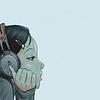Take a photo of a barcode or cover
dark
informative
reflective
tense
medium-paced
Plot or Character Driven:
A mix
Strong character development:
No
Loveable characters:
Complicated
Diverse cast of characters:
No
Flaws of characters a main focus:
Yes
slow-paced
Plot or Character Driven:
A mix
Loveable characters:
No
Diverse cast of characters:
No
Flaws of characters a main focus:
Yes
"In tal modo si isolava l'impulso omicida nell'umanità. L'idea di uccidere (...) per il semplice gusto di farlo! Per un brivido privo di fondamento emotivo".
Nice the first part, extremely boring the second one.
2.5
2.5
This is a fictionalized account of the 1924 case of Leopold and Loeb, two young adults who murdered a young boy. Both young men saw themselves as "supermen," above the law, and smarter and more clever than police.
The author, Meyer Levin, was a rookie reporter who was a classmate of both boys and who helped to crack the case. Leopold and Loeb were defended by Clarence Darrow, and the crime was considered at the time to be the "crime of the century."
The author, Meyer Levin, was a rookie reporter who was a classmate of both boys and who helped to crack the case. Leopold and Loeb were defended by Clarence Darrow, and the crime was considered at the time to be the "crime of the century."
Per essere al di sopra e al di là della legge, l'autore del delitto non deve essere spinto dal bisogno né da altri moventi emotivi tipicamente umani quali la lussuria, l'odio o l'avidità. In tal caso il delitto è puro atto, il gesto di un essere assolutamente libero, di un superuomo.
Il grande pregio dell’opera di Levin è riuscire ad analizzare le motivazioni e i comportamenti dei colpevoli di un terribile caso realmente accaduto senza mai risultare scabroso, moralista, o al contrario giustificarne le azioni. La prosa è scorrevole e brillante, ma il ritmo dell’opera subisce un brusco rallentamento nell’ultima parte, dove viene presentato il resoconto del processo nei suoi minimi particolari, e l’attenzione si sposta dal caso in questione a discussioni sui massimi sistemi, in particolare il valore giuridico dell’infermità mentale e la giustizia della pena di morte.
Elemento notevole è come il romanzo riesca a immergere il lettore nella prospettiva dell’epoca dei fatti senza che questa però prenda il sopravvento su una narrazione che, perlopiù, non esprime giudizi. Il lettore ha l’opportunità di osservare i due assassini da diversi punti di vista: il loro proprio, quello dell’opinione pubblica, degli amici, del giornalista protagonista (alterego dell’autore) e degli psichiatri che li interrogheranno.
Spoiler
In conclusione nessuna risposta definitiva viene data a spiegare il comportamento criminale di Juud e Artie, varie questioni centrali che rimangono eternamente insolute: i due ragazzi avrebbero ucciso lo stesso se non si fossero incontrati? Juud sarebbe “guarito” se non fosse stato arrestato? I due hanno cercato inconsciamente di farsi scoprire? I loro disturbi mentali possono essere davvero un’attenuante al terribile crimine da loro commesso? Al lettore l’ardua sentenza.
I had wanted to read the novel this play was based on, but the library only had the play. The play was fine, but the 40 page forward is what made this publication. So petty. Forty pages of detailed grievances about the director and producer of his play. Summary: He wrote a play, the director and producer ended up having someone else rewrite it. Levin decided to publish his superior version since that is not what audiences saw. I guess the play that was put on ended up being a flop. Amazing piece of niche pop culture drama. 10 out of 5 stars.
challenging
dark
emotional
informative
reflective
tense
medium-paced
Plot or Character Driven:
A mix
Strong character development:
Complicated
Loveable characters:
No
Diverse cast of characters:
No
Flaws of characters a main focus:
Yes
Graphic: Child death, Homophobia, Mental illness, Sexism, Toxic relationship, Violence, Antisemitism, Kidnapping, Religious bigotry, Murder
Moderate: Rape, Sexual assault, Sexual content, Sexual violence, Xenophobia
Minor: Adult/minor relationship, Biphobia, Incest, Pedophilia, Suicidal thoughts, Car accident, Dysphoria, War, Classism
Fascinating story of the "Trial of the Century": Leopold & Loeb in 1924. I knew of the case as a line or two in a US History textbook, but this novelization by Meyer Levin, who covered the story as a cub reporter in Chicago and classmate of Leopold & Loeb, gives a very thorough treatment to the two brilliant but disturbed young men who abducted and killed a younger boy in a quest to commit the "perfect crime." The book was strongest as it developed the relationship between the two men and contrasted them with the narrator (a character standing in for the author himself.) I plodded through the section that dealt with the trial as it seemed pretty repetitive, but thought Levin did a brilliant job in ending the book with a very thought provoking parallel from his own experience in Europe after World War II. In all, very glad I read it.
challenging
dark
informative
reflective
sad
slow-paced
Plot or Character Driven:
Character
Strong character development:
Complicated
Loveable characters:
No
Diverse cast of characters:
No
Flaws of characters a main focus:
Yes





